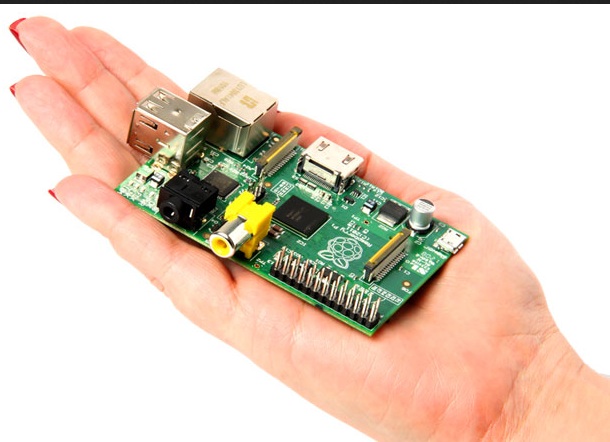The idea behind a tiny and affordable computer for kids came in 2006, when Eben Upton, Rob Mullins, Jack Lang and Alan Mycroft, based at the University of Cambridge’s Computer Laboratory, became concerned about the year-on-year decline in the numbers and skills levels of the A Level students applying to read Computer Science. From a situation in the 1990s where most of the kids applying were coming to interview as experienced hobbyist programmers, the landscape in the 2000s was very different; a typical applicant might only have done a little web design.
Something had changed the way kids were interacting with computers. A number of problems were identified: the colonisation of the ICT curriculum with lessons on using Word and Excel, or writing webpages; the end of the dot-com boom; and the rise of the home PC and games console to replace the Amigas, BBC Micros, Spectrum ZX and Commodore 64 machines that people of an earlier generation learned to program on.
There isn’t much any small group of people can do to address problems like an inadequate school curriculum or the end of a financial bubble. But we felt that we could try to do something about the situation where computers had become so expensive and arcane that programming experimentation on them had to be forbidden by parents; and to find a platform that, like those old home computers, could boot into a programming environment.
By 2008, processors designed for mobile devices were becoming more affordable, and powerful enough to provide excellent multimedia, a feature we felt would make the board desirable to kids who wouldn’t initially be interested in a purely programming-oriented device. The project started to look very realisable. Eben (now a chip architect at Broadcom), Rob, Jack and Alan, teamed up with Pete Lomas, MD of hardware design and manufacture company Norcott Technologies, and David Braben, co-author of the seminal BBC Micro game Elite, to form the Raspberry Pi Foundation to make it a reality. Three years later, the Raspberry Pi Model B entered mass production through licensed manufacture deals with element 14/Premier Farnell and RS Electronics, and within two years it had sold over two million units.
We don’t claim to have all the answers. We don’t think that the Raspberry Pi is a fix to all of the world’s computing issues; we do believe that we can be a catalyst. We want to see affordable, programmable computers everywhere. We want to break the paradigm where without spending hundreds of pounds on a PC, families can’t use the internet. We want owning a truly personal computer to be normal for children, and we’re looking forward to what the future has in store.

